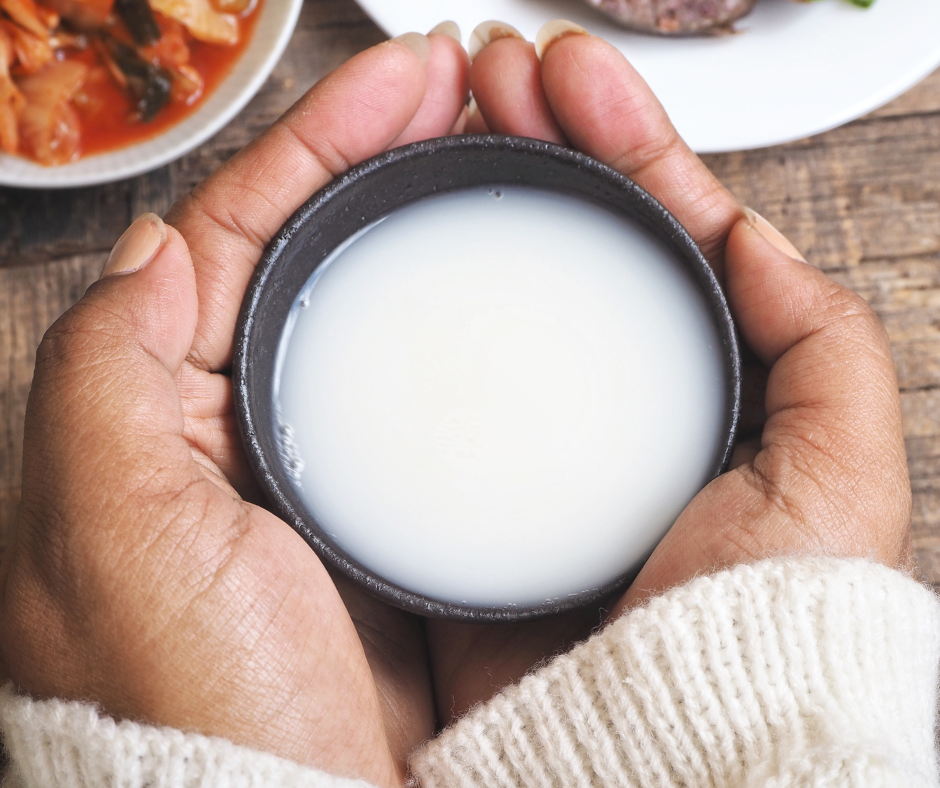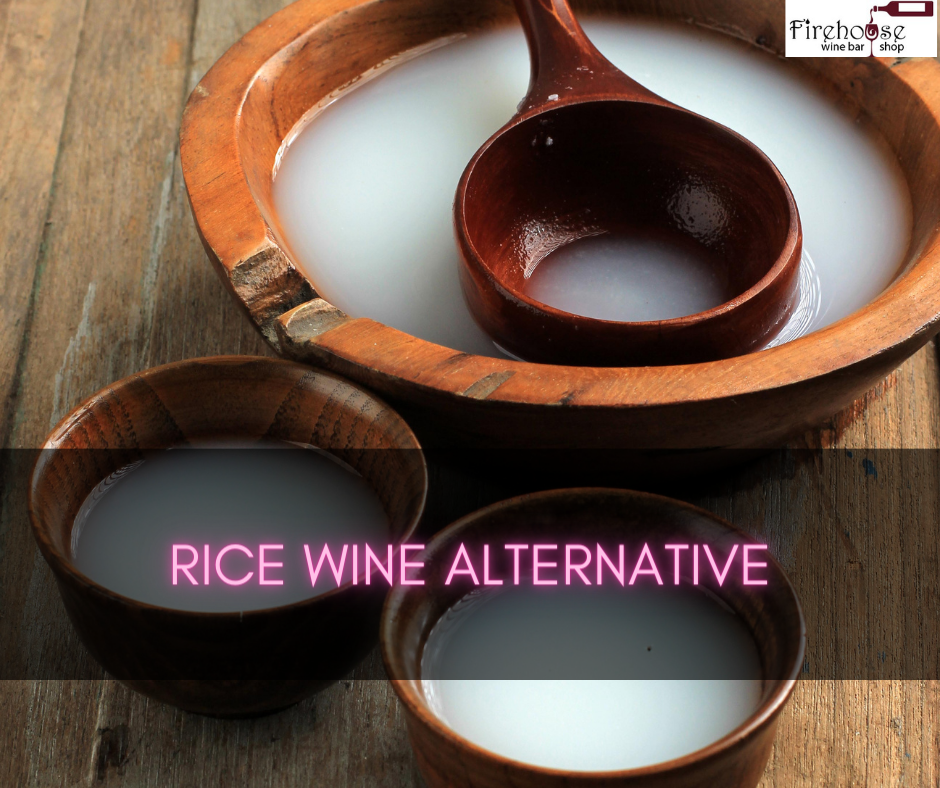Introduction
There may be instances where a cook may run out of rice wine or may choose not to use it as an ingredient for personal reasons. In such scenarios, choosing an appropriate rice wine alternative is essential to creating delicious and satisfying meals. This blog section provides information on the best alcoholic substitutes for rice wine that can be used in different recipes to enhance flavors and aroma.
What Is Rice Wine?
Rice wine is a popular cooking ingredient in Asian cuisine. It is made from fermented glutinous rice with a mild, sweet taste that adds depth to different dishes. Its unique flavor profile makes it an irreplaceable component in certain recipes, especially those that require the addition of acidity or sweetness.
Why Are Rice Wine Substitutes Needed?
One of the main reasons for seeking rice wine substitutes is availability. Rice wine is not always easily accessible in every location, making it difficult for cooks to include it in their recipes. In other cases, cooks may prefer not to use alcohol for personal reasons. In such instances, it’s important to know suitable substitutes that can be used in place of rice wine without compromising the dish’s quality and taste.
When it comes to substituting rice wine, it’s essential to consider the unique flavor profile it brings. Dry white wines like a pale dry sherry, gin, and dry white wine are perfect substitutes for rice wine. Sake or mirin and apple or grape juice can also be used as alternatives. Liquor stores usually carry pale dry sherry, making it the most commonly recommended substitute for rice wine.
In conclusion, while rice wine adds a unique taste and aroma to different dishes, several alcoholic substitutes can be replaced. Choosing the right substitute depends on the recipe’s requirements, and experimenting with different options can lead to new flavor profiles.

Rice Wine Alternative: Pale Dry Sherry
What Is Pale Dry Sherry?
Dry sherry is a fortified wine made using white grapes grown in Spain’s Andalusia region. Unlike other wines, it’s fortified with brandy, which gives it a higher alcohol content. Pale dry sherry has a crisp and tangy flavor, which makes it perfect for cooking and drinking. It’s a popular substitute for rice wine in Chinese cuisine because it has a similar reddish-brown hue and flavor profile.
How Can It Be Used As A Substitute For Rice Wine?
Dry sherry is an excellent substitute for Chinese rice wine Shaoxing. It has a similar flavor profile and can be used directly in recipes that require rice wine. It’s also an excellent substitute for mirin and sake, despite their differences in appearance. Pale dry sherry has an unparalleled similarity in taste, making it a perfect alternative. Liquor stores usually carry pale dry sherry, which makes it the most commonly recommended substitute for rice wine.
When using pale dry sherry as a substitute in a recipe, it’s best to use it in a ratio of 1:1. However, it’s important to note that the flavor profile of the dish may not be identical to that of the original recipe due to the slight differences in taste between rice wine and pale dry sherry. For best results, it’s always recommended to experiment with different substitutes to find the perfect fit for your recipe.
In conclusion, pale dry sherry is an excellent substitute for rice wine. Its distinct flavor profile and similarity to rice wine make it a perfect alternative. It’s easily accessible in liquor stores, making it popular for cooks seeking rice wine substitutes. Whether for personal preference or unavailability of rice wine, pale dry sherry is a great option in every cook’s arsenal of ingredients.
Dry White Wine
What Is Dry White Wine?
Dry white wine is a type of wine that is produced by fermenting grapes without their skins. The resulting wine ranges in color from light yellow to golden and can have a range of flavors from floral and fruity to nutty and oaky. Dry white wine is typically more acidity than other wines, making it a popular choice for cooking and pairing with food.
How Can It Be Used As A Substitute For Rice Wine?
While it might not have the same flavor profile as rice wine, dry white wine can be a suitable Rice Wine Alternative in a pinch. It’s best to use a dry white wine rather than a sweet one to ensure the flavors complement the dish. Dry white wine can be used as a substitute for Shaoxing rice wine in Chinese cooking and for mirin and sake.
When using dry white wine as a substitute in a recipe, it’s important to remember that it may not impart the same depth of flavor as rice wine. Additionally, since rice wine has a higher alcohol content, adjusting the recipe slightly to account for the difference may be necessary. It’s always a good idea to taste the dish as you go and adjust as needed to ensure a well-balanced final product.
In summary, dry white wine can be a viable substitute for rice wine in certain recipes. Its acidity and flavor profile make it a suitable replacement in Chinese cooking and for mirin and sake. However, it’s important to remember that it may not provide the same flavor complexity as rice wine and may require some recipe adjustments. You can find the perfect substitution for your dish with some experimentation and taste testing.

Sake Or Mirin
What Are Sake And Mirin?
Sake and mirin are both types of Japanese rice wine, but they have distinct differences. Sake is a dry and clear rice wine, while mirin is a sweet and syrupy rice wine. Sake has a higher alcohol content than mirin and is usually consumed as a drink, while mirin is primarily used for cooking.
How Can They Be Used As Substitutes For Rice Wine?
Both sake and mirin can be used as substitutes for rice wine in cooking, depending on the prepared dish. Sake can be used as a 1:1 replacement for rice wine, while mirin can be used in smaller amounts due to its sweetness. When using mirin as a substitute, it’s important to reduce the amount of sugar or other sweeteners in the recipe to avoid over-sweetening the dish.
In Chinese cooking, sake can be used as a substitute for Shaoxing rice wine, while mirin can be used as a substitute for Taiwanese sweet cooking wine. When using sake or mirin as a substitute in a recipe for rice wine, it’s important to consider the dish’s flavor profile and adjust the seasoning accordingly.
In summary, sake and mirin can be used as substitutes for rice wine in certain dishes. Sake is a suitable substitute for dry rice wine, while mirin can be used for its sweetness. When using either of these substitutes, it’s important to remember the differences in flavor profile and alcohol content and adjust the recipe accordingly. You can find the perfect substitution for your dish with some experimentation.
Gin
What Is Gin?
Gin is a clear alcoholic drink that is made from juniper berries. Its flavor is vaguely similar to some rice wines, making it a possible substitute in certain recipes. However, it is important to note that gin has a higher alcohol content than rice wine, so only a fraction should be used instead of rice wine.
How Can It Be Used As A Substitute For Rice Wine?
When using gin as a Rice Wine Alternative, only a small amount is recommended compared to what would be used for rice wine. This is due to the higher alcohol content of gin. Regarding flavor profile, gin shares some similarities with rice wine but cannot be used in a 1:1 ratio like other substitutes.
If you cannot find rice wine or are out of it, several suggested substitutes can be used in its place. Dry white wine can make a suitable white rice wine substitute, but it should strictly be the dry variant as it is less sweet than regular white wine.
In summary, gin can be a possible substitute for rice wine but should only be used in small amounts due to its higher alcoholic content. When using gin as a substitute, it’s important to consider the dish’s flavor profile and adjust the seasoning accordingly. Depending on the recipe, substitutes such as dry white wine, sake, and mirin may also be options.

Apple Or Grape Juice
What Are Apple And Grape Juice?
Apple juice is a sweet and refreshing non-alcoholic beverage made from pressed apples. On the other hand, white grape juice is a non-alcoholic option made from green grapes that have been pressed and filtered.
How Can They Be Used As Substitutes For Rice Wine?
When cooking and replacing rice wine, apple juice or white grape juice can be suitable non-alcoholic alternatives. The acidity in these juices can act as a tenderizer, making them a viable replacement in marinades for stir-fry dishes. However, the substitution will cause a sweeter taste and lack the depth of flavor that rice wine provides.
Add vinegar to the juice to increase its acidity, or use apple or grape juice as a substitute for rice wine. This combination can help mimic the flavor of rice wine. It should also be noted that the sweetness of the juice should be balanced with other flavors in the dish to avoid an overly sweet taste. While these substitutes can work in a pinch, they will not provide the same flavor as rice wine.
In conclusion, apple and grape juice with vinegar can be a suitable non-alcoholic replacement for rice wine in terms of acidity and tenderizing effects. However, they should not be expected to replicate the flavor of rice wine completely. Other substitutes, such as dry white wine, gin, sake, and mirin, can be explored depending on the recipe and personal preference.
Other Rice Wine Alternatives
If you’re out of rice wine or unable to find it, there are other alternatives you can try as a substitute. Here are three additional options to consider:
Rice Vinegar
Rice vinegar is made from rice wine and is a great substitute if you’re looking for a similar taste. It has a mild acidity that can give the same tangy flavor to your dish without the alcohol content. To replace rice wine with rice vinegar, use a 1:1 ratio.
Coconut Water
If you want a non-alcoholic option, coconut water could be a suitable substitution. It has a natural sweetness and a slightly nutty taste that can complement Asian cuisine. Coconut water has electrolytes that can also add depth to your dish. It’s best to mix it with rice vinegar or lime juice to add acidity. Use the same amount of coconut water as you would with rice wine.
Chicken Broth
If you’re looking for a savory flavor in your dish, chicken broth can be a good alternative to rice wine. It has an umami taste that can complement stir-fries and stews. Chicken broth can also be used to tenderize meat in marinades. To substitute rice wine with chicken broth, mix it with white wine vinegar or lemon juice to add acidity. Use a 1:1 ratio of chicken broth to rice wine.
These alternatives can be a lifesaver if you can’t find or run out of rice wine. However, remember that each substitute will alter the flavor of your dish to some extent. Experimenting with different ingredients and seeing what works best for your taste preferences is important.
Frequently Asked Questions
Can I Use Any Type Of Wine As A Substitute For Rice Wine?
While some types of wine may have similar characteristics to rice wine, such as dry white wine or pale sherry, they are not exact substitutes. Choosing from the recommended rice wine substitutes for the most authentic flavor is best.
Do I Need To Use The Exact Same Amount Of Substitute As Rice Wine?
No, using the same amount of substitute as rice wine is unnecessary. However, starting with the suggested ratios and adjusting accordingly based on personal taste preferences is recommended.
Where Can I Find These Rice Wine Substitutes?
Rice vinegar and chicken broth can be found in most grocery stores. Coconut water may be available in specialty health food stores or online. Alcoholic substitutes such as sherry, gin, white wine, and sake can be found in liquor stores.
Conclusion
Rice wine is essential in many Chinese and Asian dishes, but finding it at your local supermarket may not always be possible. Fortunately, there are other alternatives that you can use as a substitute for rice wine. Pale Dry Sherry, Gin, Dry White Wine, Sake, Mirin, Apple, and Grape Juice are some of the best substitutes that you can use.
However, remember that the flavor won’t be the same as rice wine, and you should avoid certain ingredients while searching for a substitute. Apple juice or white grape juice are good non-alcoholic substitutes that can tenderize in stir-fry marinades. So, explore these rice wine alternatives to enhance the flavor and texture of your Asian cuisine.
FAQ about Rice Wine Alternative: Rice Wine Exploration: Seeking Substitutes
Q: What are some alternatives to rice wine?
A: Some alternatives to rice wine include Pale Dry Sherry, Gin, Dry White Wine, Sake or Mirin, and Apple or Grape Juice.
Q: Why would I need a rice wine substitute?
A: You might need a rice wine substitute if you cannot find rice wine at your local grocery store or if you prefer not to use it in your recipes.
Q: Are these rice wine substitutes easily accessible?
A: Yes, these substitutes are easily accessible, with the exception of rice wine itself, which may not be as readily available at regular grocery stores.
Q: How can I use these rice wine substitutes?
A: You can use these substitutes in recipes that call for rice wine. Each substitute pairs well with specific types of recipes, giving you a variety of flavors to experiment with.
Q: What kind of recipes are suitable for each rice wine substitute?
A: Pale Dry Sherry is a suitable substitute for seafood dishes and stir-fries. Gin works well in Asian-inspired recipes. Dry White Wine can be used in soups, sauces, and marinades. Sake or Mirin is commonly used in Japanese dishes. Apple or Grape Juice is a good option for sweet and fruity recipes.
Q: Can I opt-out from subscribing to newsletters?
A: Yes, you can opt-out from subscribing to newsletters at any time. If you encountered an error while trying to subscribe, please try again.

Andre Lotz immigrated to the United States from South Africa almost 20 years ago. Still, he didn’t feel truly at home until he settled in Mobile—a city that reminds him of his childhood home of Fish Hoek on the southern cape of Africa.

